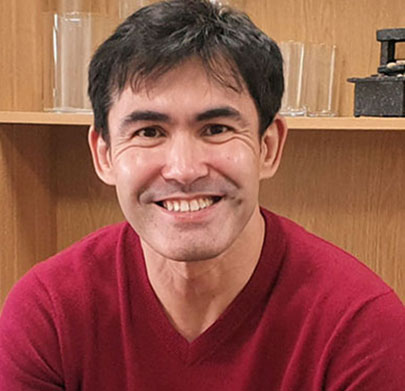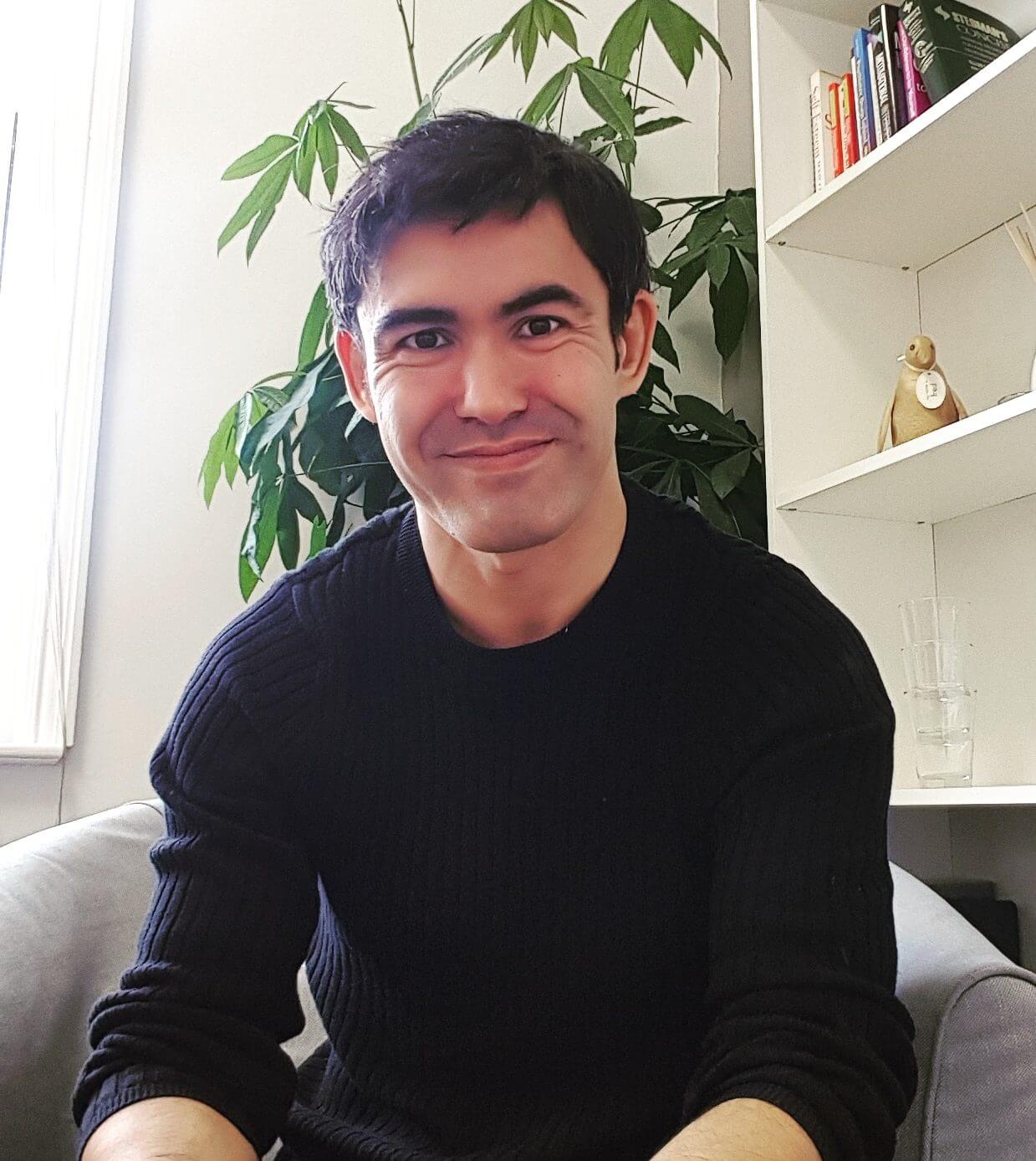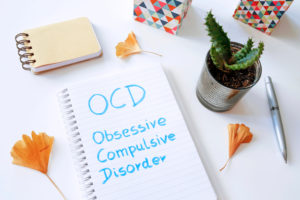Interview for KBK Fitness – Kris Kane (Personal Trainer and Coach) and Dr Stuart Sadler (Clinical Psychologist & Sleep Specialist) at Newcastle Psychologist & Counselling).
Published: 13 July 2022
KBK Fitness: Thanks a lot for giving up your time this afternoon. Really appreciate it.
Just as we were just talking before, one thing I’m trying to do at the moment is to get input from other coaches and professionals on specialist areas that clients might struggle with.
And the most recent topic we’ve been looking at is all about sleep, which is something that I know you know a lot about. So really appreciate your time – I know you’re a busy guy, but I know you know your stuff in this area.
So just to kick us off before we get into the detail, do you mind just tell us briefly about what it is you do and specialize in?
Stuart: Yeah. Absolutely. And, it’s absolute pleasure to speak to you, Kris.
I’m a really big admirer of your work, so it’s really great to speak to you.
KBK Fitness: Thank you.
Stuart: So, yeah, my name is Stuart Sadler.
I’m a Clinical Psychologist and I specialise in depression, anxiety and sleep disorders.
And I work with people who have been having trouble with their sleep, whether it’s trouble falling asleep, insomnia, nightmares or trouble waking up throughout the night or early on a morning.
And the reason I focus on depression, anxiety and sleep is because it kind of forms a three legged stool where if there’s trouble with one, then quite often, there’s one of the other things in the background whether it’s the problem or whether it’s just one of the mechanisms affecting sleep.
So they tend to overlap quite a bit and as a result it’s quite useful to be able to approach it from that perspective of “Sm I not sleeping because of worry? Or am I not sleeping because of my mood?”
But really, it’s about helping people improve their performance, whether day to day, with their athleticism or whatever, through improving the sleep.
KBK Fitness: So it’s quite a wide scope that that you deal with there.
And I think it’s a real interesting area and one that kind of most people probably, myself included, don’t pay enough attention too.
So just to just to sort of kick us off of this, Stuart, although it might seem obvious, why is a good night sleep important?
Stuart: Great question. It is a really fundamental question, but it’s a great one.
So sleep fulfils a lot of functions… we’ve kind of broadly got two different types of sleep – we’ve got what’s called non-REM sleep, which is the part of sleep that is responsible for the physical rest and recovery…
Our tissues are regenerating during that time, hormones are being replenished, ready for release and there are a lot of internal biological processes that go on that really serve to help our body function and to recover from the day before.
There’s also what’s called REM sleep, which usually occurs after non-REM sleep.
And that’s the mental recovery -that’s where our memories are being consolidated, where we’re drilling down on any learning from the day, where our attention pool is being filled up ready for next day and our mental energy is being replenished.
I imagine you’ve had that experience, that we all have, where we’ve not slept very well and we kind of find the next day harder. It’s harder to regulate our emotions and we feel a little bit less effective in anything we do.
So sleep, it’s really important for both physical and mental recovery.
KBK Fitness: Yeah. I think it’s an area that most people take for granted or rather don’t do anything about, you know, not address the situation if their sleep isn’t great.
And a lot of the clients I work with, a lot of their goals revolves around weight loss.
So just focusing on that Stuart, how can poor sleep quality affect someone who’s wanting to lose weight in their progress.
Stuart: Yeah. Well, I guess there direct and indirect effects of it.
The direct effect is that if we’re eating before bed, then whilst we’re meant to be recovering and resting, our body is using energy digesting food, which affects the sleep quality.
And like we mentioned a few minutes ago, if we don’t get very good sleep quality, we feel groggy the next day – we might be less likely to exercise, we might make less good decisions about what we eat, we might become a little bit more sedentary, or even lie down and sleep the next day rather than burning off energy and doing things that help us lose work.
There’s also the effect that different hormones have.
So insulin is released when we eat and if we’re eating too late on the night, then we’ve got insulin affecting us.
And we do gain more weight if we eat during the night than we do during the day, which kind of makes a lot of sense if you think about it – we’re eating, we’re building up a huge energy store, but then we’re not doing anything with it compared to during the day where we might be walking, we might be working, thinking, etcetera, etcetera.
And I suppose there’s the indirect effects too where, like I say, if we don’t sleep very well how that will impact our activity the next day and make us less active than what might be otherwise.
KBK Fitness: Mhmm – and I guess we’ve got the amount of time of sleep and the quality of that sleep as well.
Is there a recommended? Is it still kind of seven to nine hours would you say in terms of the time asleep? Is that still a good guideline would you say?
Stuart: Yeah. Usually, the number that’s thrown around quite a lot is eight or eight and a half hours.
And the reason for that is because that’s generally a pinpoint average.
But the actual average range is about between six and nine hours, which is influenced by our age.
We need less sleep as we get older. It might be influenced by some external factors about what part of the world we live in, where if there’s a lot more light, we might sleep less.
But six to nine hours is a good amount of time. What I would say though is that the actual sleep quality is more important and quite often we might do things that damage up quality.
We might do things like use alcohol, we might do things like, let’s say, eat too late at night, we might do things like work too much or go to bed with stress on our mind.
So the idea really is about a good block of consolidated high quality sleep that maybe lasts between six and nine hours.
KBK Fitness: Right. Yeah.
And actually, interesting enough, just leading up to this, I ran a poll on my LinkedIn to see how much sleep people were getting. And I think about forty odd percent was under seven hours.
And the rest was seven to eight, and no one really on the high number. So that gave me sort of a bit of an insight to length of sleep, but not so much, like you said, about the actual quality of their sleep, which I know actually is an issue for a lot of people and some of the clients that I work with as well.
So I work with a lot of busy professionals who are the on the go through the day, need to be performing at their best yet kind of struggle to switch off on the latter end of the day and need to get that kind of good quality sleep.
So from your experience, what would be some quick wins that they can do to improve over their routine, maybe leading up to bed, or to ensure that they actually get a better night sleep overall?
Stuart: Yes. Also a great question.
And it is really hard in this year to be able to get that good quality because we’ve become a bit of a… I won’t even say a nation, but more of a kind of society or species where we focus a lot on doing rather than the recovery side.
And quite often a good way of thinking about it is that when it comes to stuff we can do, we don’t just work to a sixteen hour where we’re awake and it’s daytime, and then an eight hour where it’s night and sleep.
We work to a twenty four hour – it’s actually a bit longer than that – but we work to a twenty four hour rhythm.
So a good place to start is always to look at what we’re doing during the day.
If daytime is all stress, we want our stress stuff to be during the day, but then we want all that to be put to rest for night. So making sure that we’re not working too late, making sure that we’re not checking emails – especially in bed… We don’t want that daytime life to bleed over into night time.
So any way we can reduce stress during the day – which I know is much easier said than done nowadays.
Things like, switching off the laptop at least three to four hours before bed, not using your phone in bed – and that’s not so much only just because of the effect that the light has, but usually with using our phone, we don’t hold it out here…Right?
We’re like this, and we’re looking at emails, we’re looking at YouTube, we’re looking at stuff that gets us stressed and worked up.
So anytime that we can start to digital detox, the earlier the better, especially if your job involves looking at computers a lot of the day.
Like I mentioned, eating earlier – we would say try and stop eating at least three hours before going to bed. The reason for that is just so that the foods had a good chance of being digested.
If there’s a lot on our mind as well, a really good thing we can do is just get a piece of paper and just literally brain dump everything on our mind and leave it on the kitchen counter for the next day so we can go to bed with a good empty head.
KBK Fitness: That’s good.
Stuart: And what I would say is that most people I see, even though people say that they go a bed at a reasonable time, I often find that they go to bed a bit too early and then spend too much time in bed laying awake, whether it’s watching TV, reading, or whatever.
Really, we want to isolate the bed and bed time to be only used for sleep and relaxation.
We need to feel safe, we need to feel relaxed, we need to feel calm in order to sleep and if we’re going to bed straight after say, work, which happened quite a lot during COVID when people were working from home, we’re not really giving ourselves that wind down time, and that wind down time could be really important.
KBK Fitness: So ideally trying to have that time elsewhere and then just straight to [bed] when you want to go to sleep. That’s when you go to bed and keep that separation?
Stuart: Absolutely, yeah.
And there are things that can help as well with that wind down – having a hot shower, changing your clothes even if you work from home – having work time clothes and then relaxation at home clothes…
Meditation is a great one… There’re lots of things, doing exercise, lots of things that can separate day time from night time.
KBK Fitness: Yeah. And you mentioned you mentioned about eating later on in the day.
So giving the body a chance of digest everything leading up to going to sleep, how about caffeine intake? I know that can be an influence as well?
At what point of the day, would we limit caffeine intake so it doesn’t disturb this sleep quality?
Stuart: So caffeine is a very common one, and there are so many things that have caffeine in that we don’t necessarily know about.
Like chocolate, for example, even decaffeinated drinks are allowed to have small amounts of caffeine in and still call themselves decaffeinated.
The problem with caffeine drinks or caffeine is that it works on what’s called a half life and say caffeine’s half life is around four hours, what that actually means is that if you have one cup at ten in the morning, after four hours, you’ve got half a cup left in your body.
But then after another four hours, you’ve got a quarter of a cup left in your body. And then after another four hours, you’ve got an eighth of a cup.
So it’s not like half disappears and then the other half – it’s more like it’s half of a half of a half.
So some people can be, and are, so caffeine sensitive that that might have a cup of coffee at ten o’clock on a morning, and they’ve still got it left in the system at night.
So if there’s any suspicion that caffeine might be a cause, then it’s always good to spend a bit of time just cutting it out completely and seeing what effects that has.
It’s often not just the obvious sources of caffeine…
It might be that we have a coffee on a morning, but then we have a bottle of Pepsi and we have some chocolate, or a piece of chocolate cake, something like that.
So it’s always worth thinking about.
Certainly, we don’t wanna be having caffeine in darkness because, rather than it being day and night, our body actually uses lights and dark as a way of regulating our body clock.
So In winter, it’s dark at six o’clock and summer it’s light at six o’clock. Our body doesn’t really vary based on the hour.
It varies more based on whether it’s light or dark, which is another reason why we want to minimise exposure to bright light on a night.
KBK Fitness: Right… Yeah.
That’s a really interesting, especially what you’re saying there about the caffeine as well.
I suspect people probably have caffeine much later in the day or that the effects of that lasts a lot longer than people realise.
Stuart: And it’s similar with nicotine as well.
I mean, nicotine is a stimulant and when people smoke, in effect, you’re taking a stimulant.
So that has a detrimental effect on our sleep as well. But these are all normal habits.
We know people who have coffee, people who have an energy drink, people who smoke, and we don’t really think much of it, but it does impact on our sleep quality.
KBK Fitness: Yeah. Definitely.
And I and I think as I mentioned at the start, a lot of people, if they’re not having a great night’s sleep, if they’re not getting that quality, don’t analyze their routine to see why that might be the case and some of what you just mentioned there straight away we can be looking at… their environment, their foods, caffeine, and some of the other points you mentioned there.
So that’s really useful.
And just one other thing I was gonna ask is there are a lot of sleep aides that are advertised at the moment whether it’s apps or I know there are sprays, different types of lights, because like you were saying about gently waking you up on the morning and that type all that type of stuff…
Are there any of them you would recommend or what are your thoughts on that type of thing?
Stuart: Yeah. So again it’s a really good question.
Because in order to improve the quality, we want to be feeling relaxed, and feeling safe and calm.
It’s like I mentioned about not going to bed stressed so anything that helps with that is great.
So immediately, that brings in things like meditation apps, and there’re hundreds around.
There’re also ones on YouTube that can be really helpful, there are things like lavender sprays, or real lavender as well.
The research shows that lavender has a positive effect.
In terms of things like apps, there’re lots of different apps if people are concerned that they have problem with their sleep.
Because our body is kind of geared towards good sleep naturally it’s only when things get in the way of that, that it becomes a problem.
So for example, if people suspect that they’re having trouble with snoring or a problem called sleep apnea, which is where people wake up gasping for breath every, well up to multiple times an hour, there are voice recorders people can use that’ll sit silent during the night and when they hear noise, it’ll start recording and record whatever you’re doing.
If you’re talking, if you’re coughing, if you’re snoring, you’ll be able to listen back to that over the next day to work that out.
There’re also apps that will play what’s called binaural music, which is music that induces a certain brain frequency to help with sleep as well.
KBK Fitness: So can I just ask Stuart with those types of things are they more beneficial, would you say, for kind of getting to sleep, or do they help with that quality through the night as well?
Stuart: So it’s kind of both really because we go through various sleep stages throughout the night and quite often if we wake up before we’re due to, that’s why we might feel a little bit groggy.
So if we’re falling asleep effectively and we do wake up at various points during the night, we just don’t tend to remember it because it’s only for a few seconds… but if you set a recorder going, you will always hear yourself cough or rollover or whatever – and you won’t remember it, but that’s actually you waking up and then you fall back asleep.
But if we’re able to fall asleep better, and we’ve got our bedtime right, then we’re [able to] stay asleep for the entire sleep cycle… So when we’re sleeping or falling asleep easier, it also has a knock on effect on the quality.
KBK Fitness: Yeah.
Stuart: I guess one of the things to be aware of, are the things that can impact or wake us up to early.
So, you know, making sure if our bed is uncomfortable, if our room smells, if it’s got clothes drying over the radiator, if there’s light – a street light outside that beams through the window, if the temperature gets too hot, you know, some of it can impact our sleep quality.
It’s a little bit like a hot air balloon – there’s stuff that you can do that makes the balloon rise higher but equally you want to drop some of the sand bags that are weighing it down too.
KBK Fitness: Yeah yeah.
There are so many factors I guess can influence it but yeah it’s such a fascinating area and one I know we could talk all afternoon about especially with your knowledge on this.
But yeah you’ve given us some great tips to take away and use straight away so I really appreciate that. I know that we’re kind of limited in terms of the time we’ve got now.
So just to finish up, how can you help people with that next step or how can people find out more about what you do and what would be the next step how you could help a client if they felt like they needed a higher level of support with sleep.
Stuart: So there’s a lot of things that can go wrong with sleep, I mentioned insomnia, nightmares, waking up, not getting the quality and if anyone feels as though they’re having trouble with any of that, I’m based in Newcastle upon Tyne where I see people face to face in our office but I also work through Zoom, Skype and WhatsApp video.
Our website is https://newcastlepsychologist.co.uk and people can contact me through that.
All of our contact details are on there whether it’s email or text.
And usually what we do, is if someone gets in touch is, we would arrange a short 10 minute call to find out a bit more about the problem just to make sure I am the best person to help and if not then we’ll see who might be.
But I work with people on a one-to-one basis and we can have a look at what might be affecting your sleep and look at ways of fixing it.
KBK Fitness: Brilliant well thank you so much for your time, Stuart, I’m sure that based on this you’ve given people things they can think about with their routine or their environment.
As I mentioned at the start it’s an area that people probably neglect and just taking the time to look at all those things that you’ve mentioned can make a difference.
But if people need to dig deeper I’m sure they will be in touch. So thanks again for your time and hopefully we’ll catch up again.
Stuart: Yeah it’s been a please. Thanks a lot Kris.
KBK Fitness: Cheers mate, thank you very much.

Best wishes,
Dr Stuart Sadler
Lead Clinical Psychologist




